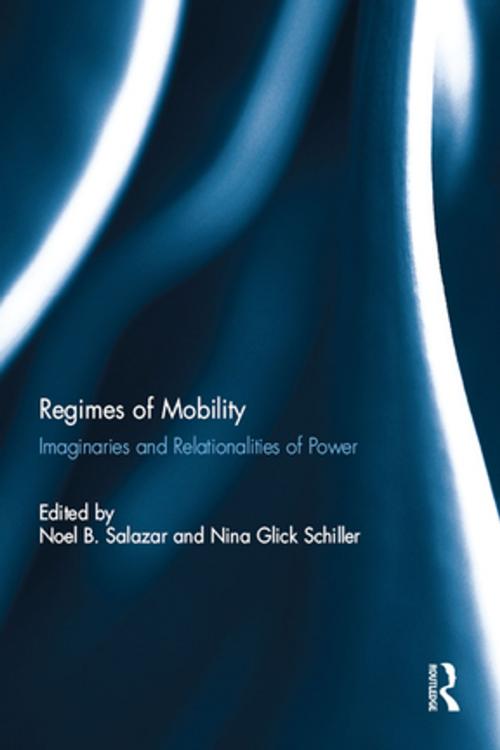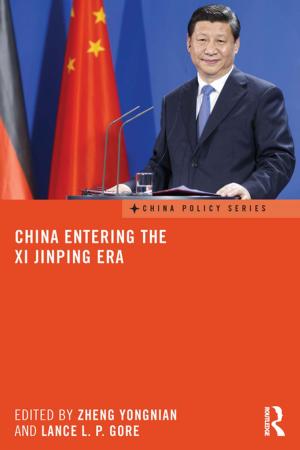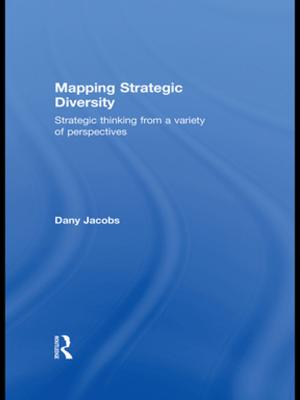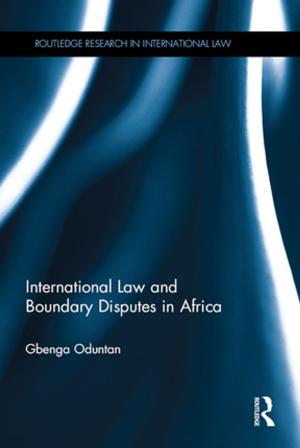Regimes of Mobility
Imaginaries and Relationalities of Power
Nonfiction, Social & Cultural Studies, Social Science, Sociology| Author: | ISBN: | 9781317747253 | |
| Publisher: | Taylor and Francis | Publication: | August 25, 2016 |
| Imprint: | Routledge | Language: | English |
| Author: | |
| ISBN: | 9781317747253 |
| Publisher: | Taylor and Francis |
| Publication: | August 25, 2016 |
| Imprint: | Routledge |
| Language: | English |
Mobility studies emerged from a postmodern moment in which global ‘flows’ of capital, people and objects were increasingly noted and celebrated. Within this new scholarship, categories of migrancy are all seen through the same analytical lens. This book builds on, as well as critiques, past and present studies of mobility. In so doing, it challenges conceptual orientations built on binaries of difference that have impeded analyses of the interrelationship between mobility and stasis. These include methodological nationalism, which counterpoises concepts of internal and international movement and native and foreigner, and consequently normalises stasis. Instead, the book proposes a ‘regimes of mobility’ framework that addresses the relationships between mobility and immobility, localisation and transnational connection, experiences and imaginaries of migration, and rootedness and cosmopolitan openness. Within this framework and its emphasis on social fields of differential power, the various contributors to this collection ethnographically explore the disparities, inequalities, racialised representations and national mythscapes that facilitate and legitimate differential mobility and fixity. Although they examine nation-state building processes, the anthropological analysis is not confined by national boundaries.
This book was originally published as a special issue of the Journal of Ethnic and Migration Studies.
Mobility studies emerged from a postmodern moment in which global ‘flows’ of capital, people and objects were increasingly noted and celebrated. Within this new scholarship, categories of migrancy are all seen through the same analytical lens. This book builds on, as well as critiques, past and present studies of mobility. In so doing, it challenges conceptual orientations built on binaries of difference that have impeded analyses of the interrelationship between mobility and stasis. These include methodological nationalism, which counterpoises concepts of internal and international movement and native and foreigner, and consequently normalises stasis. Instead, the book proposes a ‘regimes of mobility’ framework that addresses the relationships between mobility and immobility, localisation and transnational connection, experiences and imaginaries of migration, and rootedness and cosmopolitan openness. Within this framework and its emphasis on social fields of differential power, the various contributors to this collection ethnographically explore the disparities, inequalities, racialised representations and national mythscapes that facilitate and legitimate differential mobility and fixity. Although they examine nation-state building processes, the anthropological analysis is not confined by national boundaries.
This book was originally published as a special issue of the Journal of Ethnic and Migration Studies.















